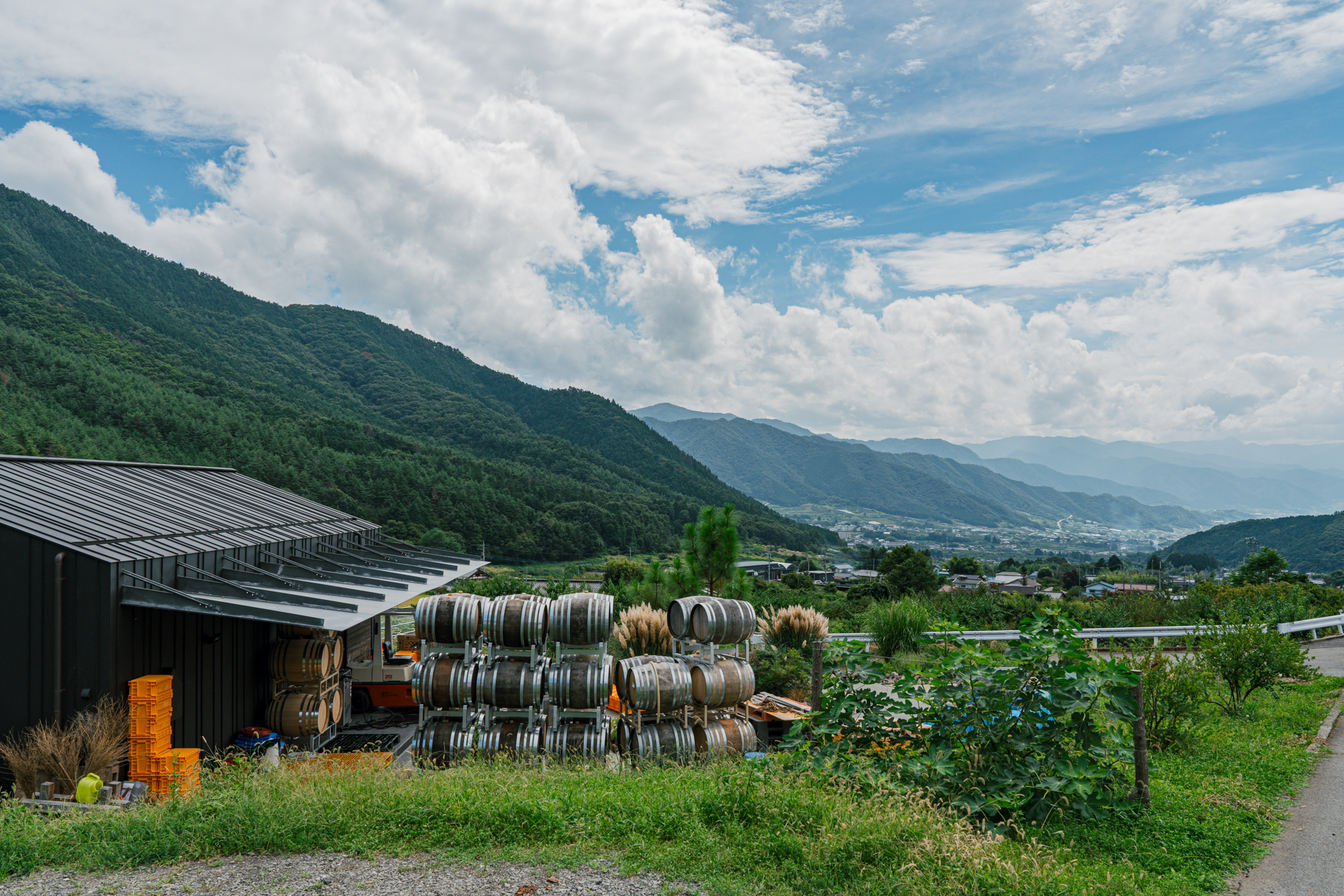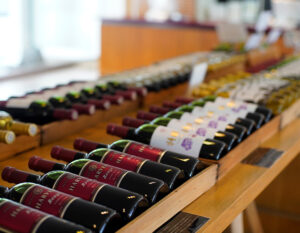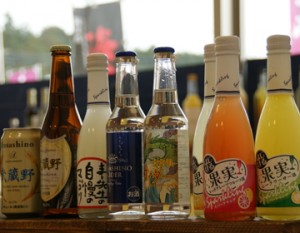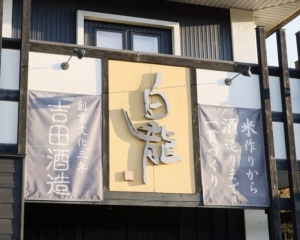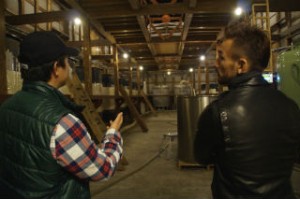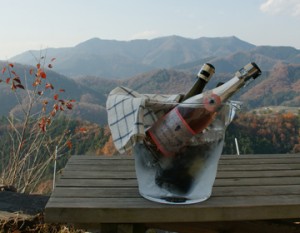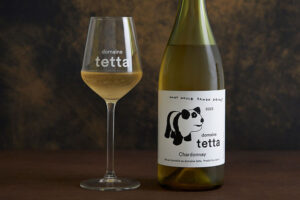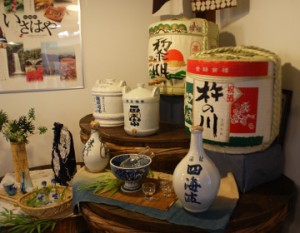Koshu City in Yamanashi Prefecture is home to many unique wineries of various sizes. The number of wineries is as many as 45. In the northern part of Koshu City, located in the eastern part of the Kofu Basin, in Shioyama Fukuori, vineyards spread across a steep mountainous terrain, and a winery stands with an outstanding view of Mt. In Yamanashi, the birthplace of Japanese wine, we encountered an innovative wine with the prominent personality of the winemaker, Shigeyuki Hirayama.
With the Evolution of Japanese Wine
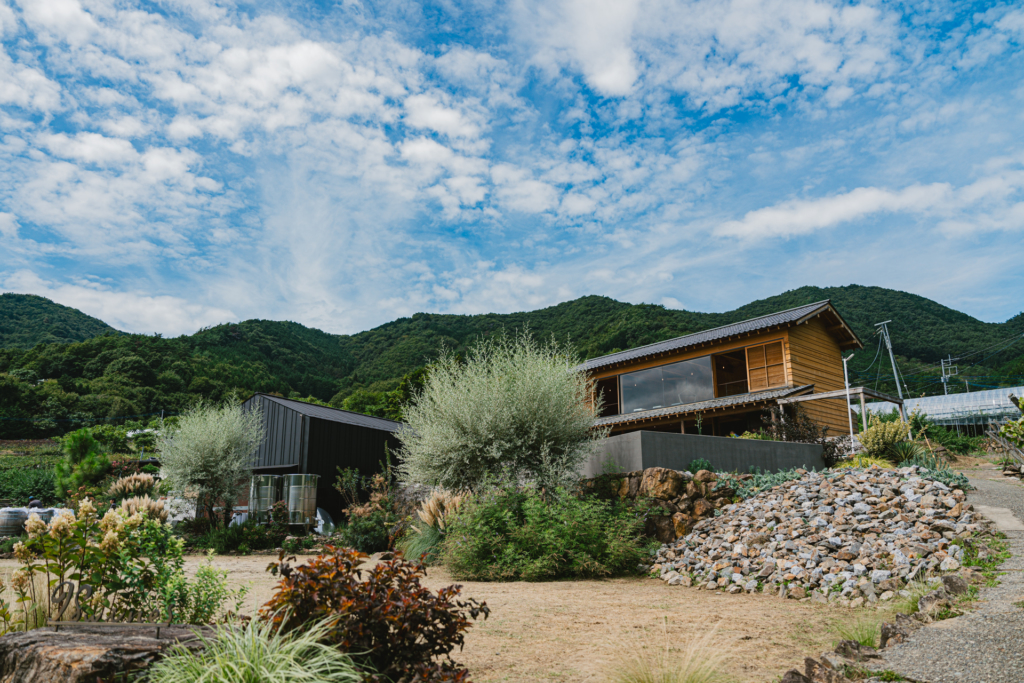
Originally from Yokohama, Kanagawa Prefecture, Mr. Hirayama came to Yamanashi when he was 25 years old. When he was 30 years old, he went to Burgundy, France to study and saw the workings of a small winery up close, which made him realize, “I want to own my own winery and make wine. I want to own my own winery and make wine. At the time, he had a grand dream of obtaining a winery of his own and making world-class Japanese wine. At the time, it was impossible to apply for a new winemaking license, but Mr. Hirayama’s passion for wine and insatiable inquisitiveness motivated him to pursue his dream, and he worked as a winemaker at a winery in Yamanashi Prefecture for many years.
However, in the late 1980s, when Japan began to realize that “imitation alone will not make Japan a wine-producing nation,” a Merlot wine produced in Nagano Prefecture won a major gold medal at an international wine competition, and Japanese wine The country entered an era of great evolution and came to be in the limelight at world competitions. At the same time that Japan was gaining worldwide recognition as a wine-growing region, Mr. Hirayama turned his attention once again to indigenous varieties. He found infinite possibilities in the varieties that had been passed down through the generations in Japan and shifted his focus to winemaking that makes the most of the natural environment and land of Koshu City, believing that “it is the local climate, including the varieties, bacteria, temperature, and wind that are rooted in this region, that creates the wines.
Then, when he reached the milestone of turning 60 and was freed from his previous career, Mr. Hirayama launched a consulting business to contribute to the wine industry, and with the help of his co-founders and a relaxed application process for a brewing license, he began to realize the dream he had in his 30s.
Focusing on varieties unique to Japan
98WINEs, a winery established in June 2018, incorporates all of the knowledge, skills, and unique theories backed by experience that have been cultivated up to that point. Based on the concept of “planting the right variety for the right place in the right season,” which means planting varieties that are suited to the climate and natural conditions of the 650-meter-high land, only two varieties were selected: Muscat Baily A, which is native to Niigata Prefecture, and Koshu, which is indigenous to Yamanashi Prefecture. Koshu, in particular, “is a very aromatic grape with a rich acidity. The bitterness that lingers in the aftertaste produces a crisp wine.
Processes that allow the grapes to reach their full potential
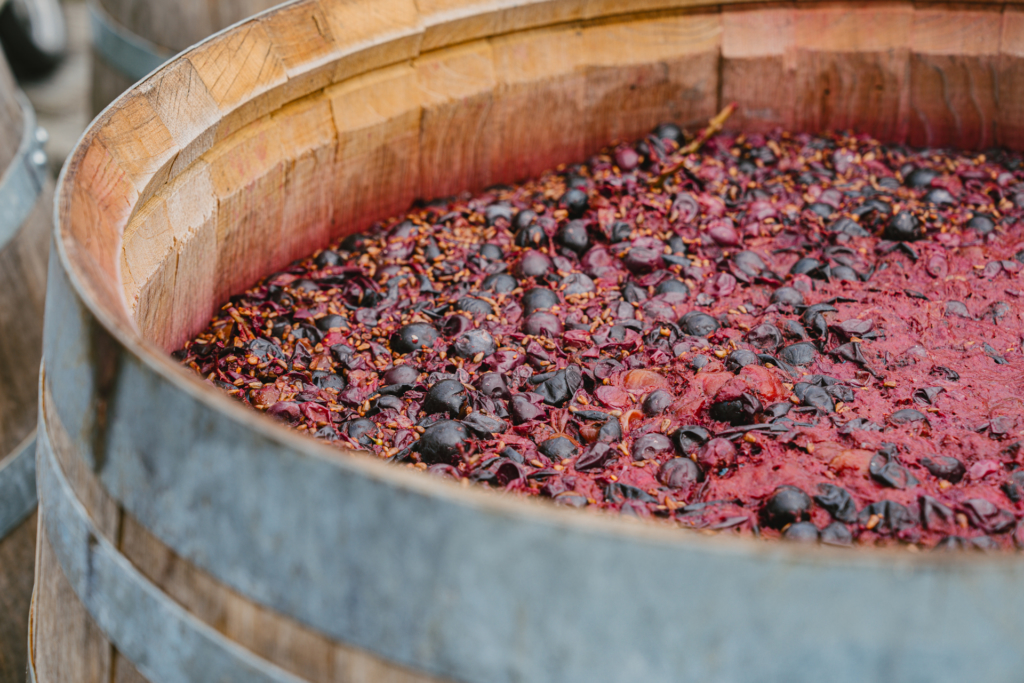
The piles of Muscat Baily A grapes that are harvested are not destemmed, which is the process of removing the stalks from the grapes. Instead, the grapes are put directly into barrels and fermented by crushing them with the feet. This is a surprisingly primitive method, but Mr. Hirayama says, “I believe that whole-cluster fermentation empirically reduces the strawberry flavor characteristic of Muscat Baily A.” The crushed grapes are transferred to a vat and fermented in the barrels for a few days. The crushed grapes are transferred to vats and exposed to sunlight while being stirred outdoors three times a day during the day, and then allowed to sleep quietly in the cellar at night. The grapes are full of juice and carbon dioxide gas, and you can feel them breathing as if they were alive. This process is repeated for three weeks before maturing the grapes in barrels.
Of course, Koshu is not destemmed, but the whole bunch is crushed and the juice is squeezed and put directly into the tank. The stalks act as a filter, which increases the clarity of the juice during pressing. The juice is then fermented, and the aroma of the Koshu grape is enriched,” says Mr. Hirayama. After the solids are allowed to settle and ferment as is, only the supernatant is bottled directly without filtration.
In addition, rosé wine is generally made from red wine grapes only, but the “two-stage preparation” procedure, in which Koshu grapes are added to red wine brewed from Muscat Baily A and fermented again, is used. The “mixed fermentation method” using two varieties at different harvest times was made possible precisely because of this location.
Winemaking that is close to nature and listens to the voice of the earth
Mr. Hirayama has stripped away all unnecessary processes to arrive at a very simple vinification method. To avoid stressing the fruit and wine, he uses gravity flow, which takes advantage of the gravity caused by the natural difference in elevation rather than machines, and handles the grapes gently and carefully without damaging their delicate characteristics. While maintaining strict safety and sanitary control, he eliminates chemical substances as much as possible and leaves the grapes to the natural flow of nature.
Although he sometimes makes slight temperature changes during the fermentation process or fine-tunes the amount of wine to be squeezed, he is adamant that “the wine is allowed to change in taste depending on the temperature and weather conditions of the year. The clarity and delicacy of the wines reflect Mr. Hirayama’s gentle yet graceful personality.
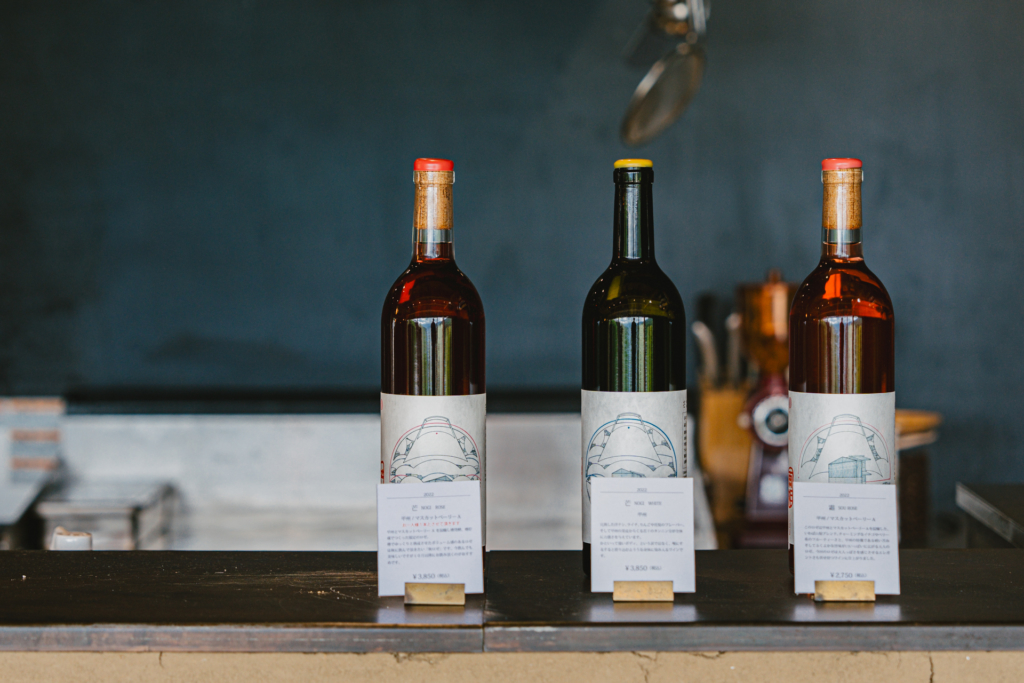
The 98WINEs lineup includes “SOU,” a series that accompanies everyday dining, “KOKU,” a long-aged wine with a gorgeous and long-lasting finish, and “NOGI,” a wine that “challenges the interesting characteristics of the Koshu and Muscat Baily A grape varieties. The “NOGI” series is the series that expresses the company’s individuality the most, and the rosé in particular is a wine that brings out the charming aroma of Muscat Baily A.
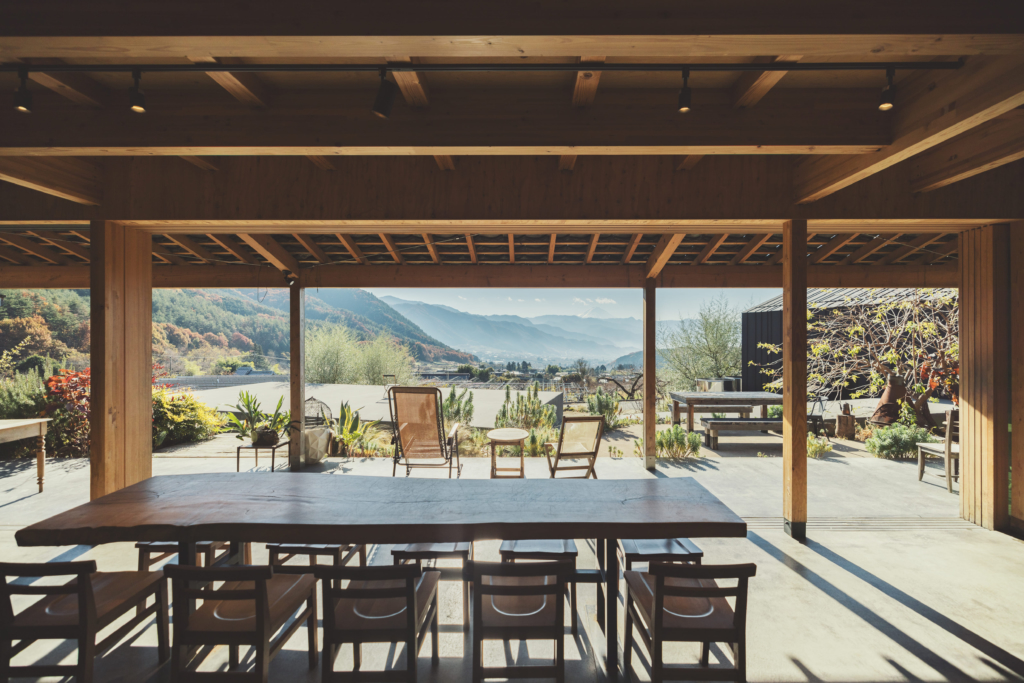
Next to the brewery is the “tree wing,” a store that offers wine tasting and sales, and Hirayama hopes to use it as a hub to interact with the many people who visit the area. This year, the winery was selected as one of the “World’s Best Vineyards 2023,” which selects the world’s best wineries involved in wine tourism. One would think that this “98 Wines” would be the culmination of his work as a winemaker, but he says, “We can’t reach 100 on our own. With the support and collaboration of various people, we would like to reach 100, and then 200, or even 300,” he smiles. Despite having lived his life alongside the history of domestic wine and having led the Japanese wine industry, Mr. Hirayama remains humble to the point of humility, but his eyes are already looking ahead to the next era. He is pursuing new possibilities for wine produced by indigenous varieties, with a view to handing down winemaking to the next generation.
Unique beer created by the craftsmanship of the brewer
Mr. Hirayama, who clearly states that he loves beer as much as wine, opened the brewery “98BEERs” in 2022 in the innermost part of the Fushouri village. He renovated a building that used to be a daycare center to create a craft beer brewery on the first floor and accommodations “Stay366” on the second floor, saying, “Beer suits Japanese people because it is a drink of technology.
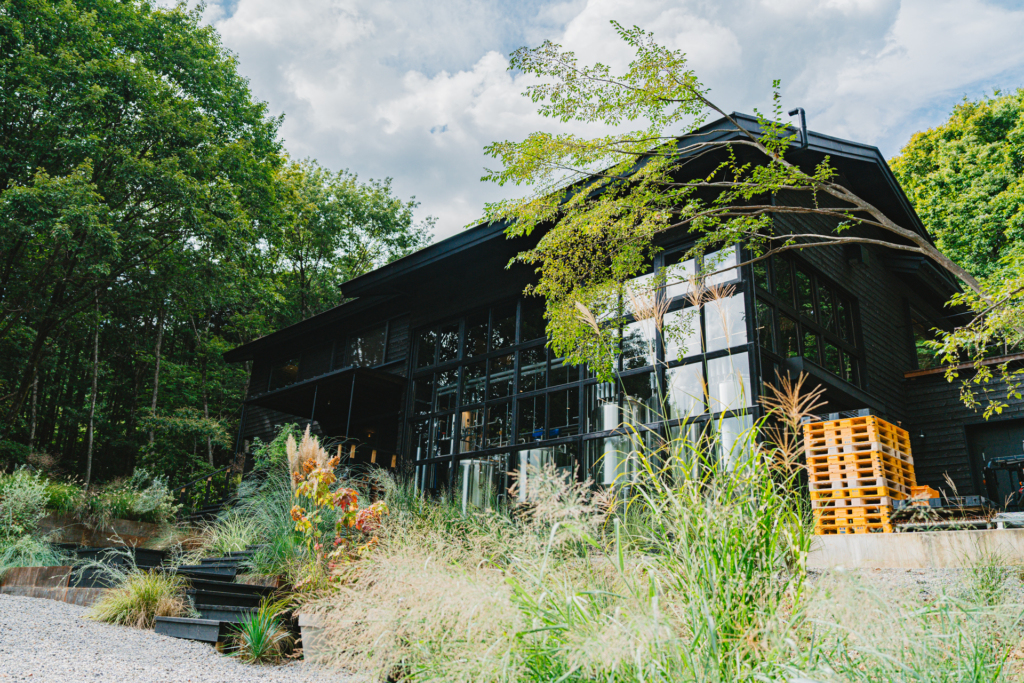
Brewer Naofumi Miyazaki is in charge of brewing the beer. The goal was to create a beer that is easy to pair with meals. The brewery sought to differentiate its beers from craft beers that emphasize hops by emphasizing the “barley wine” flavor, which allows the brewer to enjoy the harmony of various elements such as the sweetness and flavor of barley and yeast, in addition to the bitterness. The soft water in the region gives it a soft mouthfeel, and the mellowness of the beer is superb, created with the overall smoothness of the beer in mind rather than the bitterness of the hops.
They also take on new challenges in brewing beer, such as secondary fermentation in a champagne bottle using traditional Belgian methods, and actively using local ingredients such as locally grown fruit, korogaki (persimmons), and herbs grown in their garden.
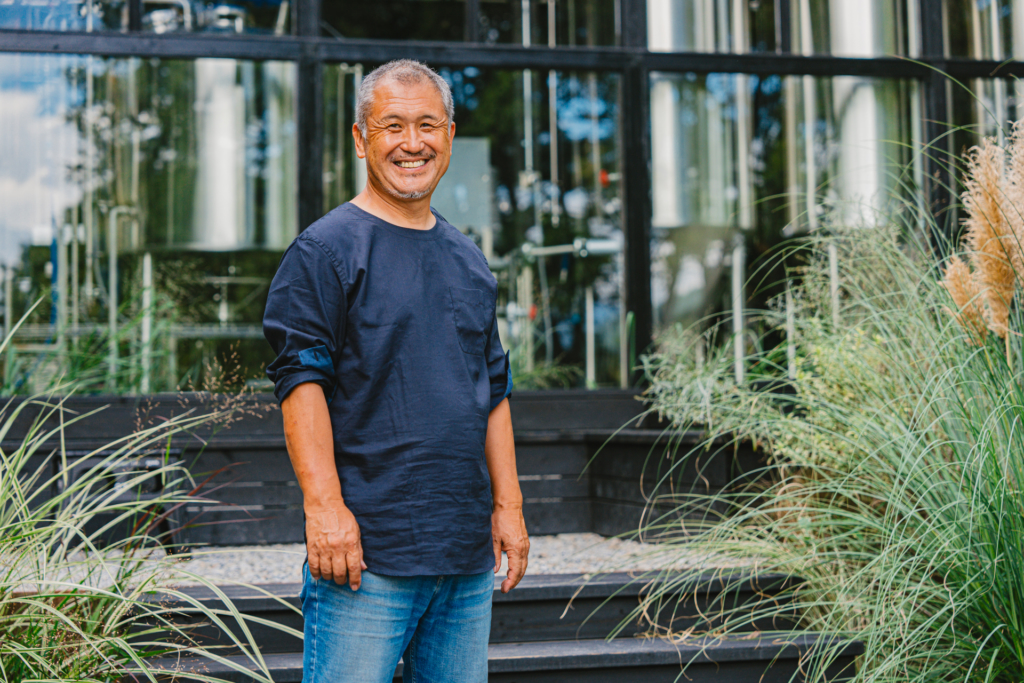
The lineup includes the orthodox standard series “98,” the second series “Jokei,” which incorporates fruits such as plums and yuzu, and the high-class “Shippo,” which is aged for a long time to give it a deep and profound flavor. and “Garden,” which is scented with herbs and nuts. Each of these beers, which have been carefully crafted to be original, have fresh and enjoyable aromas and flavors, and tasting them with wine is said to have a synergistic effect on the sense of taste.
We would like to work together with wineries and breweries to create something that can only be expressed here, without being influenced by trends,” says Hirayama. The possibilities for collaboration between wine and beer are endless.



